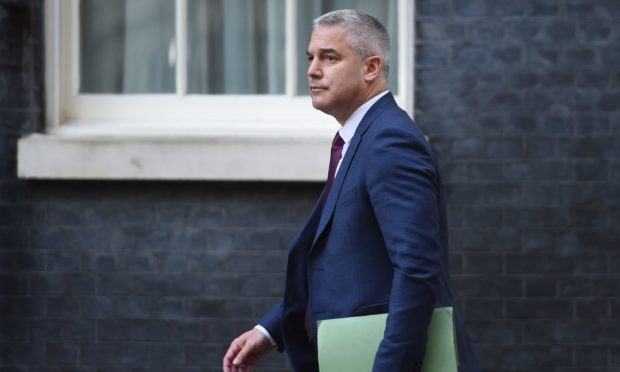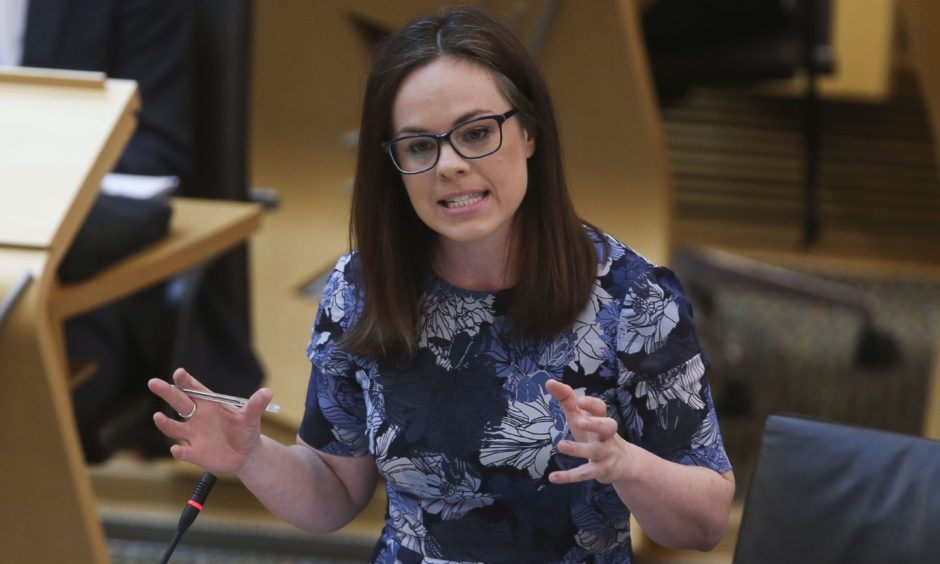Tens of millions of pounds will bypass the Scottish Parliament on its way to north councils from Westminster.
Chief Secretary to the Treasury Stephen Barclay has confirmed the new Shared Prosperity Fund will be handled on a “UK-wide” basis.
Replacing European Commission grants, the new scheme has been the centre of a row at Aberdeen City Council, as the Conservative-led administration opted to strike up talks on direct Westminster funding, side-stepping the usual council funding methods.
But opponents claimed it was an “attack on devolution”, as the UK Government plans to spend big on projects which would normally be under Holyrood’s remit.
Scottish ministers have themselves developed plans to replace EU funding, which has been worth more than £780 million over the last seven years.
Now, in an open letter to Scottish Finance Secretary Kate Forbes, Mr Barclay has brought an end to speculation on how it will work.
Ms Forbes, the MSP for Skye, Lochaber and Badenoch, said his letter confirmed the fears of her government following the Brexit vote.
In it, Conservative Mr Barclay said the fund would help “level up” the most in-need places in the UK.
He wrote: “It will operate UK-wide, using the new financial assistance powers in the UK Internal Market Act.
“We will ramp up funding so that total domestic UK-wide funding will at least match EU receipts on average reaching around £1.5 billion a year.
“We will confirm multi-year profiles at the next spending review.”
He added he was “disappointed” Ms Forbes “fails to mention the depth of support that has been available and continues to be provided” through the Covid pandemic.
In a letter to Rishi Sunak earlier this week, Ms Forbes argued it was “imperative” the chancellor immediately release the cash set aside to deal with Covid-19 in the next financial year.
But in response to this correspondence, she added: “As I have consistently said during the last year, including in my letter to which Mr Barclay replied – and repeatedly in parliament, as the record will attest – we welcome the UK Government consequential funding.
“However, demand continues to outstrip the resources available and our inability to borrow on the financial markets, or even use unspent capital funding to address immediate needs, leaves us reliant on the UK Government.”
But the news was welcomed by Aberdeen City Council co-leader Douglas Lumsden, who argued it could allow his local authority, consistently one of the lowest funded, a “fair share”.
He said: “As a council, this is what we asked for in December – the money to come directly from the UK Government to local authorities.
“It’s really good news as the quicker this shared prosperity fund is up and working, the better.
“It removes a level of bureaucracy, something we have seen with the business support grants for coronavirus.
“There are delays in funding coming from the Scottish Government so if we speed up funding for certain things coming directly from the UK Government, I think it is a good news.
“We will look at it with regards to our plans for hydrogen and achieving net zero carbon to try and boost the local economy and I’m sure we will be bidding into it as much as possible.”
Last month Leader of the House of Commons, Jacob Rees-Mogg, said the enthusiasm from city chiefs to take up the scheme was due to a desire to “separate from Edinburgh to avoid the failures of the SNP”.


